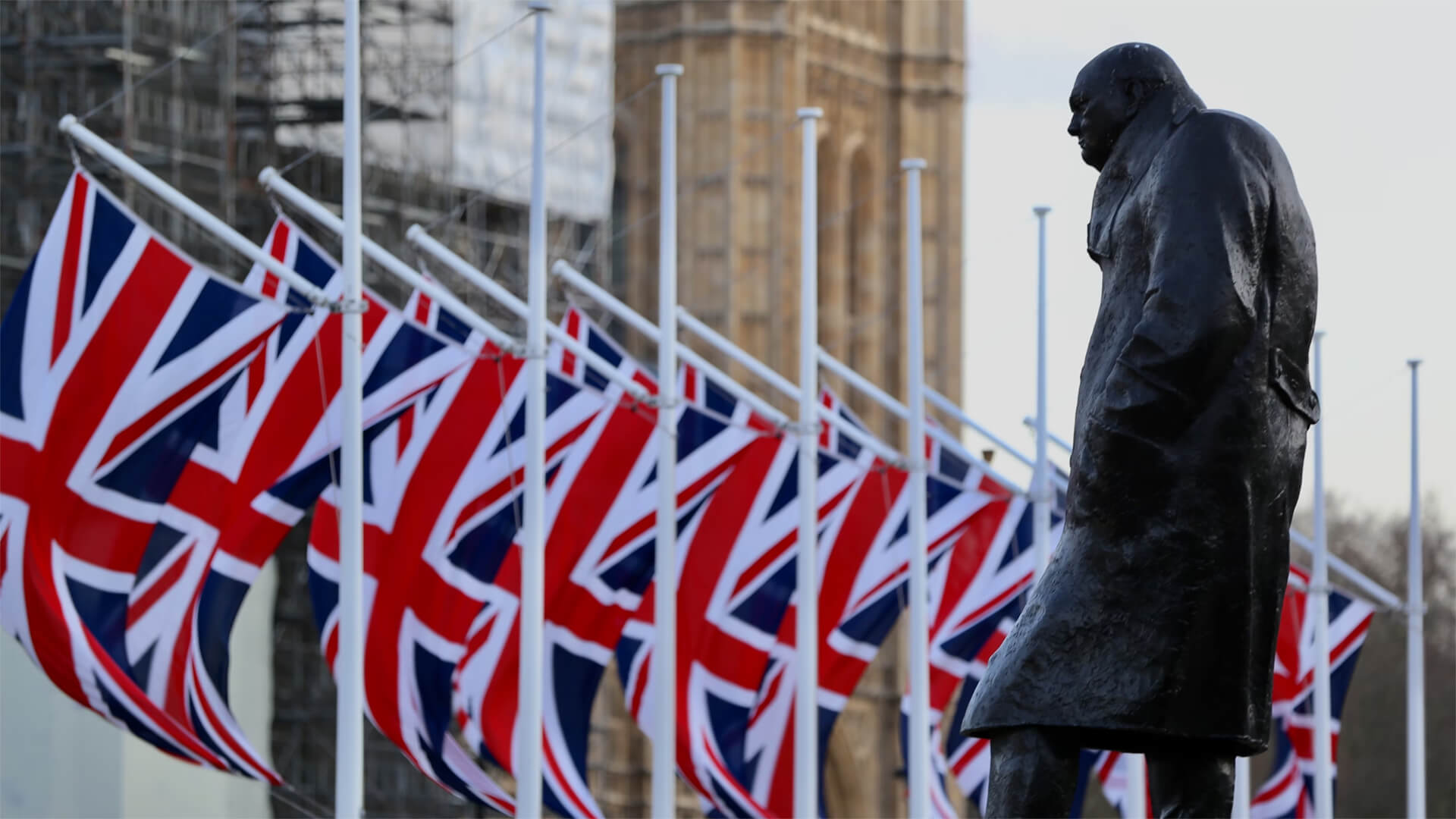In case you’ve been buried neck deep in US political news, there are some fairly important elections taking place across the globe. For the first country in our little global election coverage, we’ll be looking at the United Kingdom.
The UK has had plenty of ups and downs throughout its history; from emerging as a global financial hub during the industrial revolution, to falling from grace in the post-World War II era, to joining the EU in the 70’s and revitalizing London as a financial center…and then starting the cycle all over again with Brexit. So, what’s the significance of the most recent election?
The Labour party took a nice victory and knocked out 2/3 of the ruling Conservatives from their seats. This will allow the Labour party to steer the direction of the country, but they’ll have their work cut out for them. If we’re going to see the UK regain significance, they’re going to have to undergo a comprehensive economic realignment OR swallow their pride, trade in their tea for coffee, and partner up with North America.
Here at Zeihan On Geopolitics we select a single charity to sponsor. We have two criteria:
First, we look across the world and use our skill sets to identify where the needs are most acute. Second, we look for an institution with preexisting networks for both materials gathering and aid distribution. That way we know every cent of our donation is not simply going directly to where help is needed most, but our donations serve as a force multiplier for a system already in existence. Then we give what we can.
Today, our chosen charity is a group called Medshare, which provides emergency medical services to communities in need, with a very heavy emphasis on locations facing acute crises. Medshare operates right in the thick of it. Until future notice, every cent we earn from every book we sell in every format through every retailer is going to Medshare’s Ukraine fund.
And then there’s you.
Our newsletters and videologues are not only free, they will always be free. We also will never share your contact information with anyone. All we ask is that if you find one of our releases in any way useful, that you make a donation to Medshare. Over one third of Ukraine’s pre-war population has either been forced from their homes, kidnapped and shipped to Russia, or is trying to survive in occupied lands. This is our way to help who we can. Please, join us.
Transcript
Hey, everybody. Peter Zeihan here. Coming to you from Mica Gulch in Colorado. It is the 8th of July, and I’m taking a quick break from hiking to update everybody on what’s been going on with all these crazy elections. We talked about the United States last week. you know, lots of hate mail from that one. so it’s only fair to cover three other countries that have had elections, over the last few days.
And they’re going to be the United Kingdom, Iran and France. And we’re going to do the United Kingdom today because it’s the simplest of the three, if you can believe that,
In order to understand where we are now, it really helps to start a couple hundred years ago. if you go back before the Industrial Revolution, if you go back before Deepwater navigation, the United Kingdom, or as it was known, England, really didn’t matter all that much. It was a relatively smallish population on a relatively large,
island off the coast of Europe. And most of the mainland countries, especially France, had a far larger population and were far more significant. But when deep water navigation was developed by the Iberians, eventually that technology migrated to a country that could use it better and that would be an island.
And that was the UK. And all the income that came from a deep water navigation empire, forced the United Kingdom to, well, induce the United Kingdom to do two things. Number one, all this income had to be processed and so we got things like the London Stock Exchange and the financial heart and the Square Mile and all the things that make London, London today a place where you process capital, put it into places around the world, will be more and more efficient.
And being the primary global node for the empire meant that it was the primary global node for everyone. Well, that was piece, one piece to all. This capital floating around the United Kingdom, meant that they you had a lot of people who were developing new ideas and eventually that manifested as the Industrial Revolution.
So that is basically what has always made the United Kingdom special, the ability to leverage deep water navigation and to take it somewhere else, to generate the new technologies of industrialization, to create a global financial hub. That is why London is London. That is why the UK is the UK. That is why we think of the UK as a world power.
But of course, history doesn’t stand still. Just as deep water navigation was a new suite of technologies and migrated to a place that could use it better, so too did industrialization, and it went to Germany, which generated the German Reich in time. And it went to the United States, which generates the country that we have here and that we know now, in addition, London was hardly the only financial hub.
Every country that has a mercantile existence or an empire has to have one. It’s just the Brits were first and largest. And if you look across the pond at the United States, you had New York, It started out as, at the mouth of the Hudson, and that was the big economic artery.
And eventually that was linked to the Great Lakes. But eventually you got the Cumberland Road, which dumped a lot of product out in the Chesapeake, which was really close to New York. And eventually the Great Lakes and the Cumberland Road ended up in, the middle of the continent with the Mississippi River system and all of the cargo that went up and down the Mississippi could also use the barrier island changed to make it all the way back to the Chesapeake.
And oh, look at and behold, you’re pretty close to New York again. So without having an empire in the classic sense, New York became the financial hub, primary financial
By some measures, almost only financial for the United States. And so when you get into the post-World War Two environment, things got a little dodgy for the Brits.
What made them special about industrialization had moved on. What made them special about finance had competition. And in the post-World War Two environment, the Americans made it very clear that if you wanted the American security guarantee, all of your colonies had to be able to go their own way. And so the empire that had made London, London one anyway, and we saw a catastrophic drop in the United Kingdom’s, global reach, their standard of living, their significance and their wealth until the early 1970s, when the United Kingdom successfully joined the European Union.
Now, say what you will about the rest of the Europeans. Finance was never their forte. They tended to be more socialist, statist economies. And so when you had all this apparatus of financial strength and London looking for something to do, it was very quickly, it was very quickly able to emerge, not as a global financial hub, but as a European financial hub.
And while they had lost their global empire from a financial point of view, it’s like they got a new one in Europe. And so German, Spanish, French and Italian finance and all the rest came to London. And so from 1970, what year did they get in? 73, 71, early 70s until relatively recently, it was a model that worked really well.
And because of the sheer bulk of Europe and because of the trading, capacity of Europe, London once again was a strong financial hub until a few years ago, when the Brits voted themselves out of the European Union without a backup plan. For the last few years, under the conservative governments of Theresa may and Boris Johnson, and on and on and on, they’ve had like, what, seven GS anyway?
The Brits have basically been trying to have their cake and eat it too, after voting. That cake is illegal. it’s basically what it comes down to. They’ve shut themselves off from the European system and induced the Europeans to grab as much of the financial clout that London used to have as possible. The Americans, of course, have taken more than their fair share as well.
And that just leaves the United Kingdom with what’s generated by the United Kingdom, and then a few stray wasps here and there. They made a go at being the, completely unethical hub, particularly for Russian money. but in the aftermath of the Ukraine war, a lot of that has lost its luster.
And if you want to do Arabic financing, you’re not going to come to London, you’re going to go to Dubai. So all of the financial flows that made London an industrial and a financial hub are pretty much gone. And the last big chunk is gone because the Brits voted themselves out of the system. So what we have now is not so much a shift from the right to the left.
If you guys haven’t seen the election results, they’re pretty damning. the conservatives lost roughly two thirds of their seats. The ruling Conservatives and Labor, which has been in opposition for the last 14 years, basically doubled their seat count and will be able to rule without needing a coalition partner. But this isn’t a shift from conservative policies to liberal policies.
This is simply a reflection of the catastrophic reduction in economic possibilities that Brexit has imposed upon the United Kingdom, and blaming the government, who happens to be in charge.
Whether that is fair and out, of course, is, dependent upon your personal politics. But for the United Kingdom to matter again, one of two things has to happen.
Number one, it needs to join another group, or it is far and away going to be the financial hub. That’s not going to be Europe. They’re not going to get back into Europe. Even if they apply right now, unless they agree to a lot of strictures. That was what induced them to leave in the first place. Or second, they have to have a top to bottom root and branch economic reformation to reflects the fact that the London financial hub is no more.
And what made them special in the industrial era has changed as well. They need a new way to build and they need a new way to process. They need a new way to manufacture and most importantly, they have to have access to a large market to absorb a lot of the output. Considering that the world is globalizing, that’s a really tall offer.
Considering that the Europeans are no longer in a position where they can absorb British goods, and that’s not even an option. The only option is North America, and that means integrating with North America. North America’s terms. That will guarantee an end to London as a financial hub, because under the terms of any trade deal, New York will absorb all of that, and it will certainly restructure what’s left of British manufacturing to satisfy NAFTA goals. And that means a lot of investment into Mexico from the Brits. And that means changing a lot of the norms that the Brits have gotten used to to match American and Canadian norms. So no matter how this goes from here, what has made the United Kingdom special is gone. And what remains to be seen is whether the new government under labor can really wrap their arms and their minds around the scale of the change to the British condition that has to be implemented here. If Britain is going to be anything other than a failing middle power, which is perhaps what the Brits fear more than anything.








